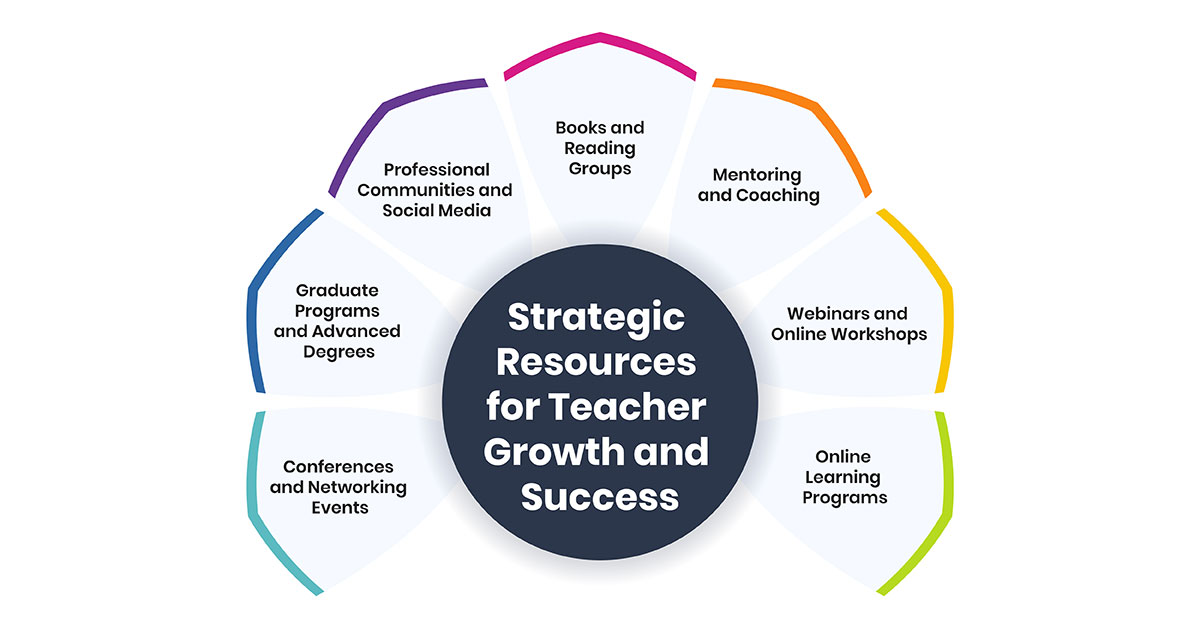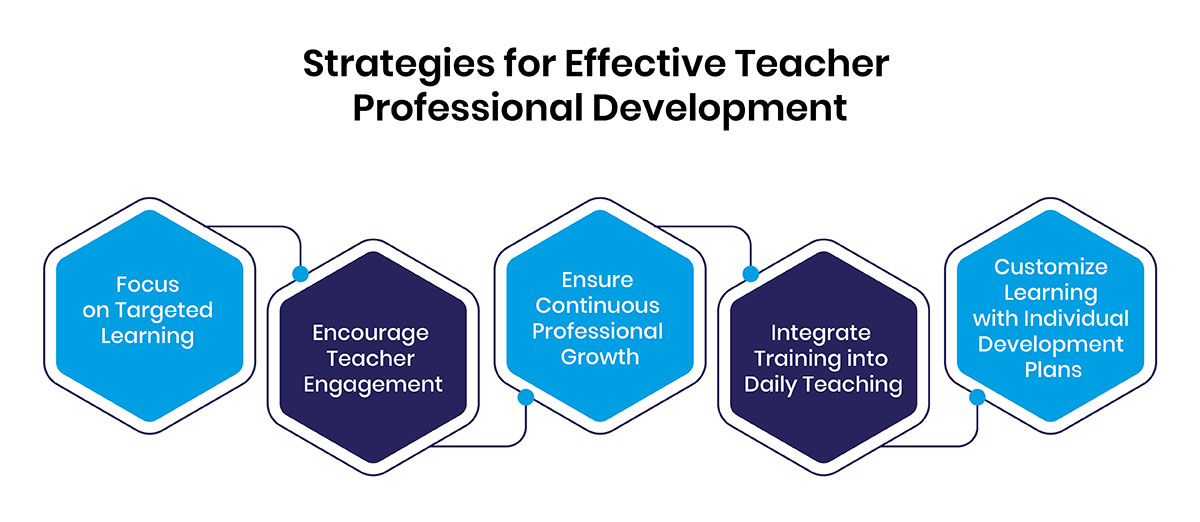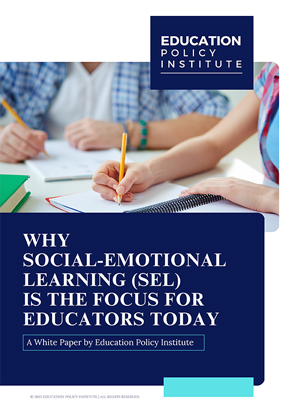Professional development for educators is crucial for fostering a positive school culture and supporting both students and teachers, though it can be challenging to prioritize amidst the demands of school management. The start of a new school year offers an ideal time for educators to focus on their growth, whether by acquiring new skills, seeking advanced certifications, or refining teaching practices. Beyond lesson planning, it’s an opportunity for teachers to reflect on personal and professional development, aiming for continuous improvement.
The shift towards remote and hybrid learning has transformed professional development needs. Educators had to quickly adapt to new technologies like video conferencing and digital collaboration tools, highlighting the importance of ongoing learning. School leaders can support this growth through regular check-ins, onboarding sessions, and offering diverse virtual training opportunities, ensuring that teachers remain well-equipped to engage students effectively in evolving learning environments.
The Significance of Teacher Professional Development for Educational Success
Teacher professional development encompasses a range of continuous learning opportunities aimed at helping educators refine their skills and knowledge. These opportunities play a critical role in ensuring that teachers remain effective in the classroom, thereby directly impacting student performance. Professional development can be structured formally through workshops, courses, seminars, conferences, and retreats, or it may occur informally through peer collaborations, independent research, or casual discussions among colleagues.
Professional development can be implemented at various levels, such as school-specific programs or individualized learning plans tailored to a particular teacher's needs. These opportunities are crucial for educators throughout their careers, as they not only build upon existing expertise but also adapt to new teaching methodologies and evolving educational challenges.
-
Enhancing Student Learning Outcomes
A primary reason for investing in teacher professional development is its positive impact on student achievement. Well-trained teachers are better equipped to address diverse learning needs and adapt their teaching strategies to cater to students who may be excelling or struggling. Professional development ensures that teachers are constantly evolving in their practice, which can lead to better educational outcomes and more engaging learning experiences for students. -
Supporting New Teachers in Their Journey
Entering the teaching profession can be challenging, as nearly a third of new teachers leave within five years of starting their careers. Professional development helps bridge the gap between theoretical knowledge and practical classroom experience, providing new teachers with valuable insights and skills to build their confidence and resilience. It enables them to tackle classroom challenges effectively and supports their long-term growth as educators. -
Building a Culture of Continuous Improvement
Targeted professional development builds a culture of continuous learning among teachers, encouraging them to adopt a growth mindset. When educators are empowered with resources and learning opportunities, they are more likely to embrace new ideas and innovative teaching methods. This mindset not only benefits the teachers themselves but also positively influences their students, creating a dynamic learning environment where curiosity and improvement are prioritized. Schools that invest in professional development demonstrate a commitment to high-quality teaching, ultimately creating a more supportive atmosphere for both teachers and students.
Top Resources for Professional Development in Education
Professional growth is essential for educators seeking to enhance their skills, stay current with teaching strategies, and meet the diverse needs of their students. Here are seven effective professional development resources that can help educators at any stage of their career:

-
Online Learning Programs
Online courses offer teachers the flexibility to learn at their own pace while balancing their teaching responsibilities. These courses often cover a broad range of topics, such as advanced pedagogical strategies, subject-specific expertise, and instructional technology. They are typically more affordable than traditional university programs and allow teachers to select courses aligned with their specific goals. -
Webinars and Online Workshops
Webinars provide a dynamic way to learn from experts in various educational fields. These sessions are often concise, making them ideal for busy educators looking to stay updated on the latest teaching trends and best practices. Additionally, webinars often include interactive elements like Q&A sessions, enabling teachers to engage directly with presenters. -
Mentoring and Coaching
Mentorship is a valuable resource for both new and experienced educators. A mentor can provide support, share practical teaching strategies, and offer guidance on career development. Mentoring relationships cultivate collaboration, enabling educators to share insights, address challenges, and enhance their instructional methods. -
Books and Reading Groups
Books, journals, and educational magazines are critical for professional development, offering in-depth insights into various teaching methodologies and strategies. Creating a reading culture among educators, such as through book clubs, can encourage discussion and reflection on new ideas, which can then be integrated into the classroom. -
Professional Communities and Social Media
Online communities and social media platforms can serve as excellent spaces for educators to connect, share resources, and find support. These platforms enable teachers to engage with peers globally, access diverse perspectives, and find solutions to classroom challenges. Engaging in online groups or forums can also help educators stay motivated and feel less isolated in their professional journey. -
Graduate Programs and Advanced Degrees
For educators seeking advanced qualifications, pursuing a master’s or doctoral degree can provide in-depth knowledge and open doors to leadership roles. Modern graduate programs offer part-time and flexible learning options, allowing educators to balance their studies with their work commitments. This pathway can be particularly beneficial for those looking to specialize in areas like educational leadership, curriculum design, or counseling. -
Conferences and Networking Events
Educational conferences, whether virtual or in-person, are valuable platforms for professional growth. These events bring together educators from diverse backgrounds, offering opportunities for networking, exploring new instructional research, and sharing best practices. Teachers can attend sessions that align with their professional interests, providing a targeted approach to their development.
Strategies for Effective and Engaging Teacher Professional Development
Professional development for teachers is crucial for their growth and student success, yet implementing effective sessions can be challenging due to time, money, and engagement issues. Here’s how to make professional training more effective:

-
Focus on Targeted Learning
Personalize professional development sessions to address the unique challenges of each teacher. Seek input from teachers on their learning needs, offer multiple workshop options, or focus deeply on a single topic. Gather feedback to refine future sessions and ensure they align with the school's educational goals. -
Encourage Teacher Engagement
Engagement is key to effective professional development. Treat teachers as professionals by using active learning methods relevant to the topics being taught. Allow them to connect with the material in ways that match their learning styles and involve them in discussions, hands-on activities, and sharing experiences. -
Ensure Continuous Professional Growth
The impact of professional development relies on its continuity beyond a single session. Encourage ongoing learning through regular check-ins and use data to identify focus areas for improvement. Offer support as teachers apply new strategies in their classrooms to ensure lasting impact. -
Integrate Training into Daily Teaching
Integrate professional development into daily teaching routines to maximize time and effectiveness. Host short, focused sessions during the school day, encourage peer coaching, and provide actionable feedback. This helps teachers implement new skills directly into their classrooms. -
Customize Learning with Individual Development Plans
A refined professional development plan with specific, measurable goals can guide teachers in their growth journey. Use the SMART goal framework to set and track progress, providing resources like courses or certifications to help teachers achieve their professional aspirations.
Conclusion
Empowering educators through ongoing learning cultivates a thriving and adaptable teaching environment. As teachers embrace new ideas and refine their approaches, they become not just instructors but lifelong learners, ready to inspire the next generation. Investing in diverse growth opportunities creates a ripple effect, elevating the learning experience for students and fostering a culture of curiosity and resilience. In a world where the educational landscape is constantly changing, supporting teachers' journeys towards growth ensures that classrooms remain dynamic spaces where both teachers and students can thrive together.
Latest
Trends blogs
- Mid-Career Education in a Changing Labor Market
- The Next Phase of STEM Education: The Role of Artificial Intelligence in Classroom Curricula
- Education Technology in 2026: Trends Driving the Next Wave of Learning
- Aligning Education with Employability: The Rise of Skill-Centered Learning
Focus blogs
- Research-Driven Education: Strengthening Strategies, Policies, and Classroom Practice
- Professional Certifications for Career Growth: What Students and Young Professionals Need to Know
- Building a High-Impact Center of Excellence: What You Need to Know
- Beyond Graduation: The Importance of Lifelong Learning in Higher Education





